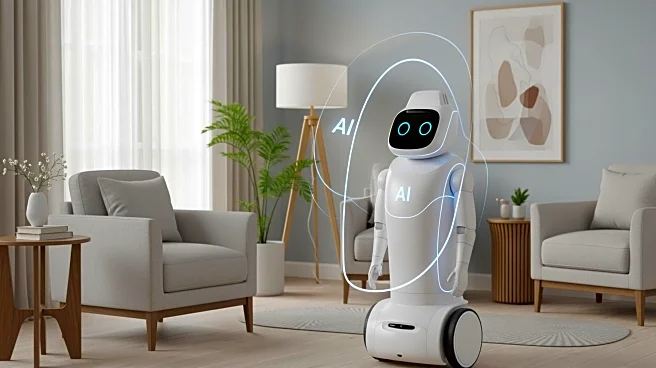What's Happening?
Senior care organizations are increasingly integrating artificial intelligence (AI) to address the changing demands in the sector. At the LeadingAge 2025 conference, industry leaders discussed the importance of AI in enhancing healthcare delivery and operational
efficiency. CDW Healthcare Strategist David Anderson noted that discussions around AI have become more practical, focusing on implementation strategies and usage. RiverWoods Group CIO David Lafferty emphasized the need for improved networking infrastructure to support the growing number of smart home devices used by residents. Mary Ann Morse Healthcare President and CEO Lisa Kubiak highlighted the necessity of recruiting a workforce proficient in technology as AI tools become more prevalent. The conference also featured a keynote address by Chef José Andrés, who advocated for inclusivity and diversity in senior care.
Why It's Important?
The integration of AI in senior care is crucial as it promises to enhance the quality of care and operational efficiency. By adopting AI, organizations can better manage resources, streamline processes, and improve patient outcomes. The focus on recruiting tech-savvy personnel indicates a shift towards a more technologically advanced workforce, which is essential for the successful implementation of AI tools. This transformation is likely to benefit both caregivers and residents by providing more personalized and efficient care. Additionally, the emphasis on inclusivity and diversity, as highlighted by Chef José Andrés, underscores the importance of creating a supportive and welcoming environment for all stakeholders in the senior care sector.
What's Next?
Senior care organizations are expected to continue investing in AI and technology infrastructure to meet the growing demands of residents and improve service delivery. The focus will likely remain on enhancing networking capabilities to support an increasing number of smart devices. Organizations may also prioritize training and recruitment efforts to build a workforce that is comfortable with technology. As AI tools become more integrated into daily operations, stakeholders will need to address ethical considerations and ensure that technology is used responsibly to benefit all parties involved.
Beyond the Headlines
The adoption of AI in senior care raises important ethical and cultural considerations. As technology becomes more embedded in care delivery, organizations must ensure that AI tools are used ethically and do not compromise the quality of human interaction. The emphasis on inclusivity and diversity suggests a broader cultural shift towards creating environments that value and respect all individuals, which is essential for fostering trust and collaboration in the sector.
















